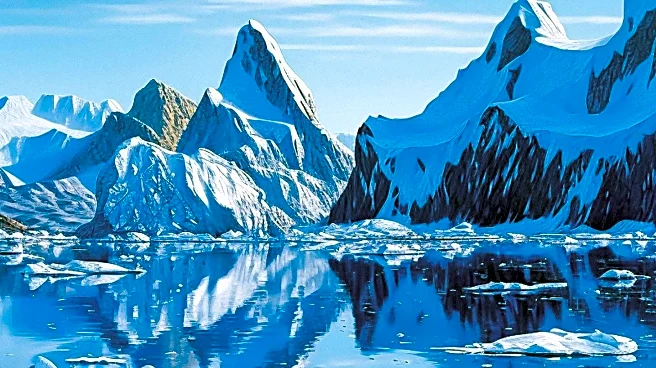What's Happening?
Colin O'Brady, a seasoned explorer, is set to undertake a record-breaking solo expedition across Antarctica. This journey will cover approximately 1,780 miles, nearly double the distance of his previous solo crossing in 2018. O'Brady's route will traverse
the Ross and Filchner ice shelves, starting from the same point used by Roald Amundsen in 1911. The expedition is fraught with dangers, including extreme cold and treacherous terrain. O'Brady's sled will carry 500 pounds of supplies, primarily food and fuel, to sustain him for the 110-day journey. Despite past controversies over his achievements, O'Brady remains focused on the challenge ahead, emphasizing the personal significance of the expedition.
Why It's Important?
O'Brady's expedition highlights the human spirit's drive to push boundaries and explore uncharted territories. His journey is not only a personal challenge but also a testament to human resilience and determination. The expedition could inspire others to pursue ambitious goals, regardless of the obstacles. Additionally, the journey underscores the importance of preserving Antarctica's pristine environment, as O'Brady aims to leave no trace behind. The expedition also draws attention to the potential risks involved in extreme exploration, emphasizing the need for careful planning and respect for nature's power.
What's Next?
O'Brady will share updates through a portable satellite unit, allowing his team to post daily messages and photos on social media. Netflix is documenting the expedition for an upcoming film, directed by James Reed. The journey's success will depend on favorable weather conditions and O'Brady's ability to navigate the harsh environment. If successful, O'Brady will set a new record for solo, unsupported crossings of Antarctica, further solidifying his legacy as a pioneering explorer.
Beyond the Headlines
O'Brady's expedition raises questions about the ethics of extreme exploration and the potential impact on fragile ecosystems. While he aims to minimize his environmental footprint, the presence of humans in such remote areas can have unforeseen consequences. The journey also highlights the psychological challenges of isolation and the importance of mental preparation for such endeavors. O'Brady's approach to training, involving community support and meditation, offers insights into the holistic preparation required for extreme challenges.
















